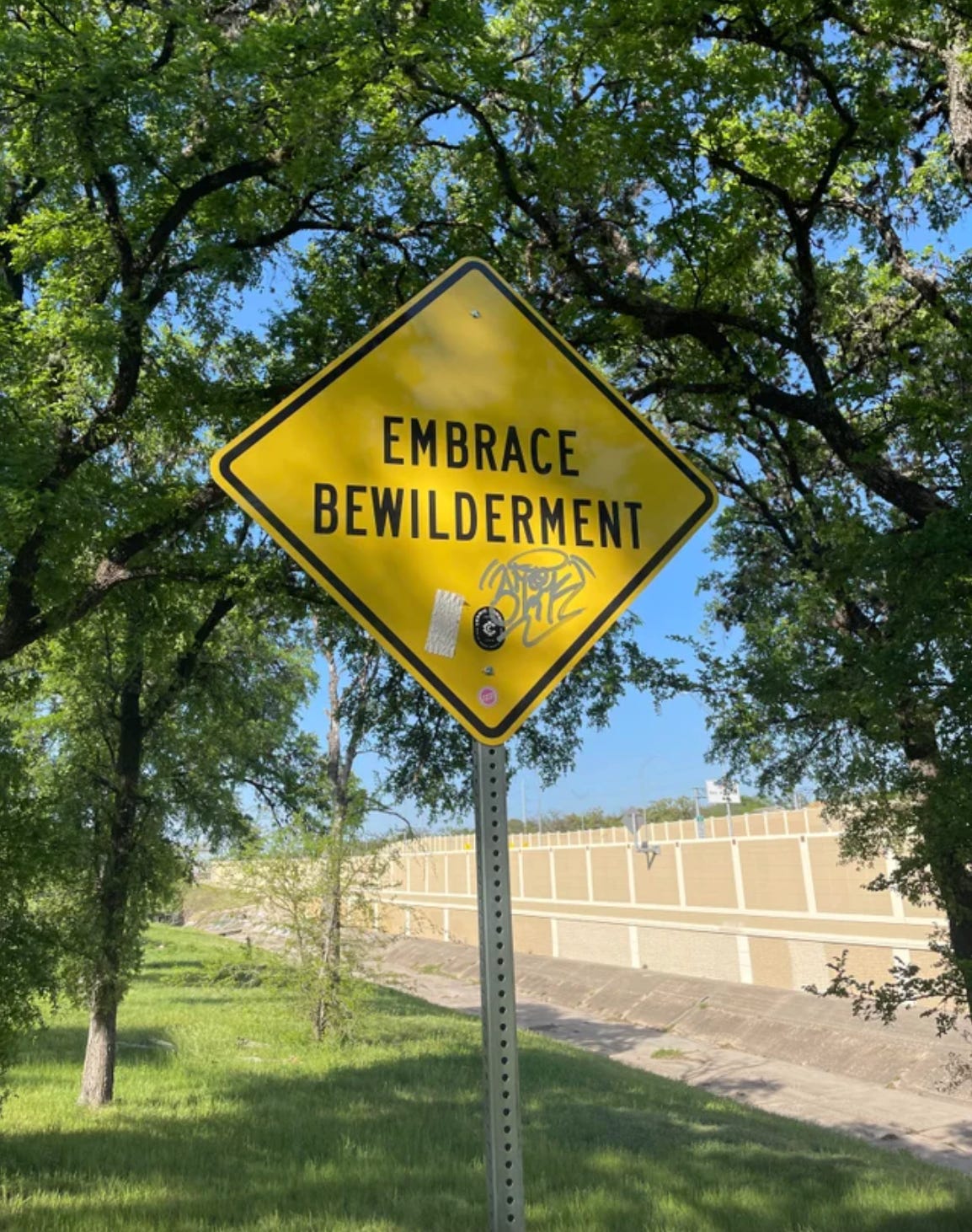We live in bewildering times.
Being bewildered is not something we enjoy, nor is it something we seek. Our usual reaction to being bewildered is to look for missing explanations, develop strategies, read something, talk to someone… in other words, do anything to find our way out. Wendy Johnson, in this wonderful dharma talk, teaches that instead of these reactions we should intentionally take on bewilderment as a “perfect ground” for practice. Instead of trying to escape the unpleasant feeling of being bewildered, she asks us to “walk into the fire” together, to pray as the Sufis pray, “Oh, Lord, increase my bewilderment.”
Valley of Bewilderment by Ayesha Gamiet
Increase my bewilderment?
Being bewildered means we have “lost our bearings”. The word comes from be- (thoroughly, utterly) and wilder (“lead astray, lure into the wilds”) and is closely related to “wilderness”. This sounds terrible! Why would we ever want to be more bewildered???
Not long ago a good friend of mine shared an important story with me. She had been responsible for hosting a prominent surgeon as visiting professor during her last year of training. (For everyone in academic medicine, this will be familiar. For those who aren’t, the visiting professor usually gives a lecture in the morning and spends the rest of the day(s) talking with colleagues, residents, and students.) It was the end of a very successful day and she was walking with him back to her car to take him to his hotel when he asked her, genuinely, how she was doing. She surprised herself and, as she explained to me, “I still can’t believe that I told him the truth.” She went on to describe what he already knew. She was, like so many healers, emotionally thin and spiritually empty after dealing with death, violence, politics in the hospital, and the moral distress of working in a system that seemed focused on profit, not people. He listened deeply, asking more questions to better understand, and then put his arm around her shoulder as he explained to her that she was “having a wilderness experience.”
In many of the world’s faith traditions, spending time in the wilderness is an important and deliberate time of struggle, a well known tool for growth that transforms you so that (importantly) you can then return to your ordinary life with new understanding and new resolve.
Maybe this is the take home message… The wilderness doesn’t have to be a physical place. To be bewildered is to find yourself in an emotional and spiritual wilderness, a wilderness with the same potential for transformation as 40 days in a physical desert… if you are able to understand that this, too, is a “perfect ground” for practice.





I'd love the back story on who came up with and paid for that wonderful road sign. May our wanderings leave paths for others to follow.
I became bewildered when I retired, and I am still trying to find my way. You seem to have discovered yours.